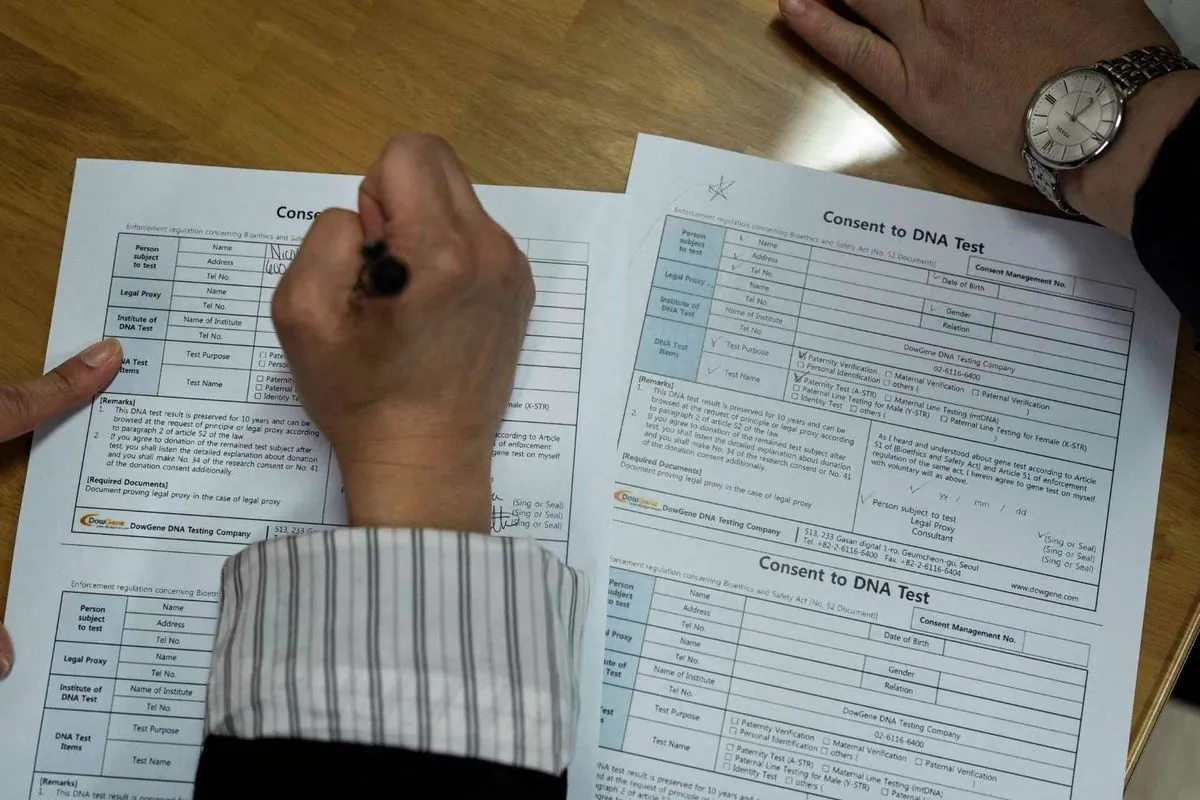In a poignant journey of self-discovery, numerous South Korean adoptees are returning to their homeland, embarking on an emotionally charged quest to uncover their roots. This phenomenon, known as "root-seeking," has gained prominence as adoptees grapple with questions of identity and origin.
Since the 1950s, approximately 200,000 South Korean children have been adopted by families in Western nations, primarily the United States and European countries. The peak of these international adoptions occurred in the 1980s, a period that saw a significant number of children sent abroad. However, many adoptees now face substantial challenges in their search for birth families, including inaccurate or fabricated adoption paperwork, language barriers, and cultural unfamiliarity.
Kenneth Barthel, adopted to Hawaii in 1979 at the age of six, exemplifies the determination of many adoptees. His story of being abandoned at a restaurant in Busan and subsequently placed in an orphanage resonates with the experiences of countless others. Barthel's motivation to find his birth mother intensified after becoming a father himself, prompting him to make multiple trips to Korea in search of answers.
The search process often involves piecing together fragmented information from grainy photos, orphanage records, and adoption agency documents. Many adoptees, like Maja Andersen, find solace in even the smallest details about their early lives. Andersen's visit to the Stars of the Sea orphanage in Incheon provided her with the comforting knowledge that she had been loved and cared for as an infant.
"She had loved being hugged, the orphanage documents said, and had sparkling eyes."
The Korean government has taken steps to address the complexities surrounding international adoptions. In 2012, the Korean Adoption Services (KAS) was established to support adoptees and birth families in their search efforts. Additionally, the government has apologized for past adoption practices and pledged to improve support for adoptees.
DNA testing has emerged as a valuable tool in the search process, with non-profit organizations offering assistance to adoptees. Local residents, police officers, and city workers often provide support, demonstrating the community's empathy towards adoptees' quests.
Some searches yield profound results, as in the case of Nicole Motta. Nearly four decades after her adoption to the United States in 1985, Motta met her birth father in May 2024. Their emotional reunion highlighted the complex circumstances surrounding many adoptions, with Motta's father claiming he had been unaware of her adoption abroad.
The phenomenon of Korean adoptees returning to search for their roots has sparked broader discussions about adoption practices, identity, and cultural heritage. Many adoptees report feeling like "outsiders" in both their adoptive countries and Korea, grappling with the concept of "han" - a Korean cultural term for unresolved grief often associated with the adoption experience.
As South Korea's economic landscape has transformed since the late 20th century, the context of adoption has also evolved. The government has implemented policies to reduce international adoptions since the 1990s and established a national adoption day to raise awareness about adoption issues.
Despite the challenges, many adoptees remain hopeful and persistent in their search. Support groups and organizations formed by Korean adoptees play a crucial role in assisting those embarking on this emotional journey. As more stories emerge and awareness grows, the complex narrative of South Korean adoption continues to unfold, shedding light on the enduring impact of these international adoptions on individuals, families, and societies.
